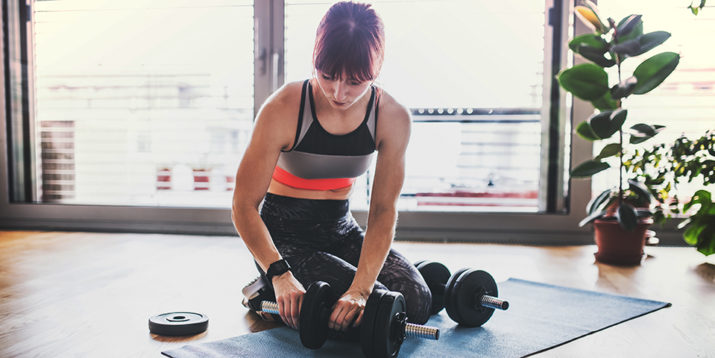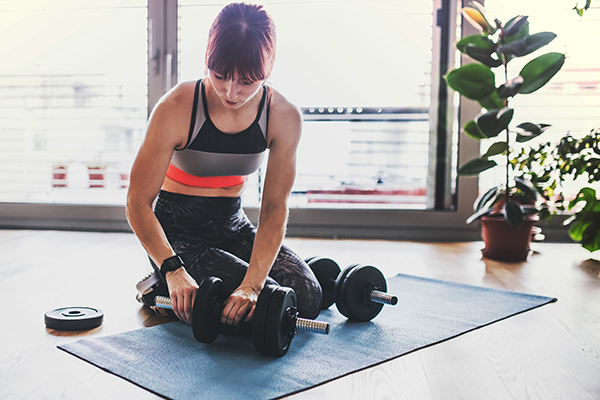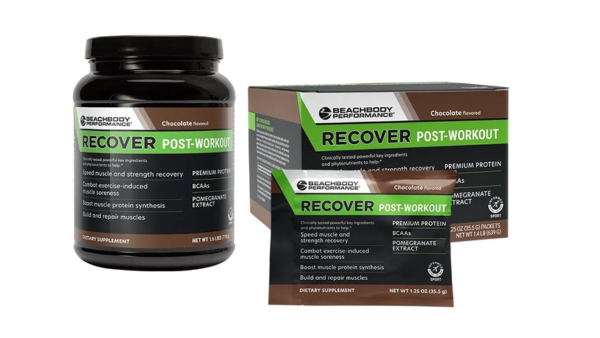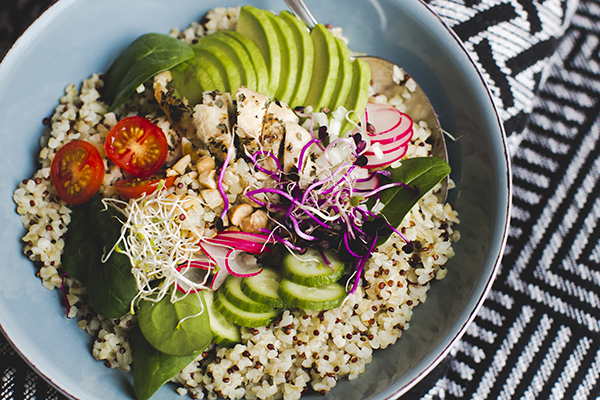What’s the Best Food to Eat After a Workout?

You know you need to fuel up properly before you work out, but post-exercise nutrition is also important.
What you eat after a workout can help replenish your body and improve recovery after a workout session — and depending on the intensity of your workout, if you skip out on a post-workout snack altogether, you may be missing out on a chance to boost the protein synthesis that plays a key role in muscle repair and growth.
So what are the best foods to eat after a workout? These six tips can help you make the most of that post-workout window.
1. Consider Your Workout Intensity and Duration

What — and when — you eat after your workout depends on what you’re doing and how long you’re doing it.
“This decision will be based on how quickly you need recovery to happen,” says Marisa Michael, R.D.N., CPT, specialist in sports dietetics and nutrition. “But most people will be in good shape having a meal within an hour or two after most types of exercising,” she adds.
If you’re an elite athlete doing multiple workouts in a day, however, you may want to refuel immediately after a workout.
And if you’re doing a particularly long or intense workout, you may want to prioritize eating within 30 minutes after your workout, says Shena Jaramillo, R.D.
2. Mix Protein and Carbs
When planning your post-workout meal, aim for about 20 to 30 grams of high-quality protein to help muscle recovery and 30 to 40 grams of carbohydrates to replace glycogen stores, Michael recommends.
Need ideas? A few options that feature healthy whole foods include:
- A smoothie with protein powder, paired with a turkey veggie wrap
- A quinoa bowl with veggies and chicken
- A peanut butter sandwich and chocolate milk
- A chicken salad with zucchini and edamame and a side of toasted whole-grain bread
- A salmon bowl with sweet potatoes and asparagus
For a lighter snack, Jaramillo recommends tuna and crackers, a banana with Greek yogurt, or a protein shake.
“Protein shakes can be an easy way to meet your hydration and nutrition needs post-workout,” Jaramillo says.

Another easy way to get the protein you need post-workout: Try Beachbody Performance Recover, which provides 20 grams of protein along with pomegranate extract and branched-chain amino acids to support recovery after an intense workout.*
3. Don’t Skip Eating
“Skipping a meal and waiting several hours after working out to eat is the worst strategy,” Michael warns. “If you do that, you won’t restore glycogen to your muscles and get the useful carbs and protein you need for recovery.”
4. Nix Alcohol and High-Fat Foods
Maybe you’ve run a 5K where a post-race beer was part of the festivities, but in general, alcohol shouldn’t be part of your post-workout plan, as it may inhibit your training gains and recovery process, Michael says.
Also, skip snacks that are high in saturated fat and low in nutrient density. A snack that includes some healthy fats — like avocado slices — is fine after a workout, but anything too greasy could make you feel bloated.
5. Eat Healthy All Day Long

Don’t limit your healthy eating habits to your post-workout meals and snacks. Be sure to eat balanced meals and nutrient-dense snacks at regular intervals throughout the day as well, Michael says.
And if you’re doing intense exercise, she suggests increasing your carb intake throughout the day.
6. Remember to Rehydrate
Along with getting the right mix of nutrients, make sure you’re on track with your hydration, no matter what type of workout you’ve done.
Even low-impact or slower exercise sessions like a yoga class should include rehydrating afterward.
To stay hydrated throughout your workout, try Beachbody Performance Hydrate, which is specially formulated to provide an optimal balance of carbohydrates, electrolytes, and water.
Bottom line? Think of post-workout nutrition as part of your overall fitness strategy — not just an optional step — and it can help you see the results you want faster.
*These statements have not been evaluated by the Food and Drug Administration. This product is not intended to diagnose, treat, cure, or prevent any disease.
